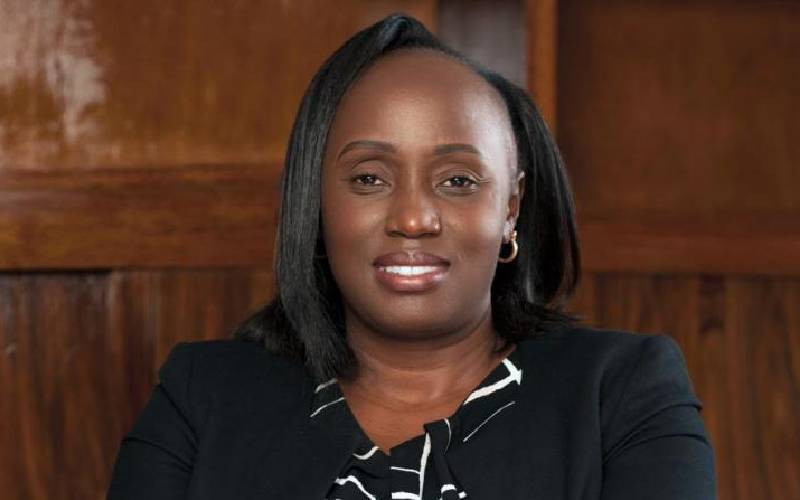Imagine, for a moment, that the Kenyan economy is stuck in a box. Trapped inside, it can’t reach its full potential. Yet, next to the box is a golden key. This key can open the lock and release the economy, allowing it to grow and flourish. In Kenya, small to medium sized enterprises (SMEs) are that key.
Across Kenya, SMEs support our economic growth; whether through food agriculture like the pineapple farmers of Thika, horticulture as in the rose farmers of Naivasha, tea production in the fields of Limuru or fishing by the communities of Kisumu. SMEs currently contribute more than half of Kenya’s Gross Domestic Product (GDP) and provide more than three quarters of all new jobs.
The importance of SMEs to society is well documented. Dalberg, a New York strategy and policy advisory firm that specialises in global development, found that, “SMEs are a fundamental part of the economic fabric in developing countries, and they play a crucial role in furthering growth, innovation and prosperity.”
This sense of innovation is crucial, not only because SMEs must innovate to grow, but also because successful SMEs mean the ultimate success of the country. A report by the UK’s Organisation for Economic Co-operation and Development (OECD) shows that when governments create a climate where SME innovation can flourish, a more “dynamic economy [with] greater employment opportunities” is created.
In general, SMEs are perfectly placed to innovate – they are small and agile, with the ability to adapt quickly when things are not working. Kenya has a great spirit of innovation at its core, yet access to modern technology, training and finance are vital to allow any SME to thrive, and these are the very things SMEs lack access to in our society.
To tackle this, we’ve been working on a number of initiatives aimed at helping SMES to reach their full potential, from faster access to loans to training sessions. Now more than ever is the time to come up with innovative lending solutions, particularly given the recent introduction of the law capping interest rates at 4 percent above the benchmark rate.
One way of supporting SMEs is through engaging and encouraging young innovators in our country. As part of this, last year we ran the Barclays Africa Supply Chain Challenge, which encouraged young innovators to submit smart business ideas that would add real value to our communities. The winner was Ashley King-Bischof, Founder and CEO of Markit Opportunity, a company that improves the incomes of Kenyan farmers by using mobile technology and logistics innovations. Markit Opportunity received $10,000 (Sh1,018,500) funding and a Barclays mentor to help drive the SME forward.
Another way of helping SMEs is through virtual accounts. Banks are now moving towards more online banking offerings, which mean that SME owners never need to go to a branch, and can save valuable time and money by being able to bank online from their smartphones or computers.
These initiatives are important, but we can’t stop there. Yes, we need to help young businesses in the innovation space to thrive. We also need to develop fintech solutions that help SMEs get on. But perhaps most importantly, in order to unlock Kenya’s full potential through SMEs, we need to ensure we’re enabling entrepreneurs from all regions and sections of society, including those from marginalised groups.
Currently, women lead 48 percent of Kenya’s SMEs, yet access to credit, lack of training and network connections are cited as key constraints to getting their businesses and innovations off the ground. And there are further barriers to market entry and growth for women: for instance, our laws require women SME owners applying for finance to get spousal consent first. Clearly, we should be looking for solutions to these issues.
To get the ball rolling on better support for women SME owners, earlier this year we launched the SheTradesKe initiative, which will target 10,000 women owned businesses in the SME sector by the year 2020 with e-learning courses, trade workshops and exhibitions to connect business owners with international markets.
Looking at the sector more broadly, SMEs require more support from our country to gain the skills and information necessary to manage their business better. To make this happen, Kenya needs more campaigns such as Wezesha Biashara, which is aimed at reaching at least 10,000 businessmen and women across the country with seminars and training sessions to enable them to improve the way they structure and run their businesses. To date, over 6000 businesses have benefitted from the programme in eleven towns and counties across Kenya.
Campaigns like these encourage shared growth – meaning that as we grow, society prospers, and as society prospers, we grow. In other words, there is mutual benefit for all parties involved. If Kenya is to prosper, we need to place these values of shared growth at the heart of our initiatives.
Now is the time to be addressing these needs, and in doing so, unlocking the key to our country’s future.-
—Susan Situma is the Head of SME Banking at Barclays Bank of Kenya
Stay informed. Subscribe to our newsletter
 The Standard Group Plc is a
multi-media organization with investments in media platforms spanning newspaper
print operations, television, radio broadcasting, digital and online services. The
Standard Group is recognized as a leading multi-media house in Kenya with a key
influence in matters of national and international interest.
The Standard Group Plc is a
multi-media organization with investments in media platforms spanning newspaper
print operations, television, radio broadcasting, digital and online services. The
Standard Group is recognized as a leading multi-media house in Kenya with a key
influence in matters of national and international interest.
 The Standard Group Plc is a
multi-media organization with investments in media platforms spanning newspaper
print operations, television, radio broadcasting, digital and online services. The
Standard Group is recognized as a leading multi-media house in Kenya with a key
influence in matters of national and international interest.
The Standard Group Plc is a
multi-media organization with investments in media platforms spanning newspaper
print operations, television, radio broadcasting, digital and online services. The
Standard Group is recognized as a leading multi-media house in Kenya with a key
influence in matters of national and international interest.









